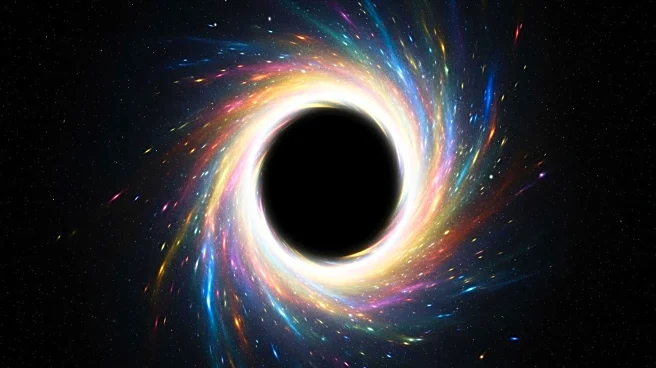What's Happening?
A team of scientists is proposing the use of numerical relativity, a computational technique for solving Einstein's equations in high-gravity environments, to explore the universe's origins. This approach aims to address the limitations of current cosmological models, which rely on simplifying assumptions that break down at the Big Bang's singularity. Numerical relativity has already proven successful in predicting gravitational wave signals from black hole mergers, demonstrating its capability to handle complex spacetime scenarios.
Why It's Important?
The application of numerical relativity to cosmology could revolutionize our understanding of the universe's origins. By moving beyond theoretical speculation to computer-based simulation, researchers can test hypotheses about the pre-Big Bang universe. This advancement has the potential to fill gaps in our knowledge and challenge existing cosmological models, offering a more comprehensive understanding of the cosmos.
What's Next?
The research team, including scientists from King's College London and Oxford University, is confident that numerical relativity can tackle these cosmic mysteries. Their proposal suggests that questions once considered speculative are becoming testable hypotheses. As this research progresses, it could lead to significant breakthroughs in cosmology and reshape our understanding of the universe's beginnings.
Beyond the Headlines
The success of numerical relativity in simulating black hole mergers underscores its potential to address other complex cosmic phenomena. This method's ability to handle the full, messy reality of Einstein's theory could open new avenues for exploring the universe's most enigmatic aspects, pushing the boundaries of what is scientifically possible.








